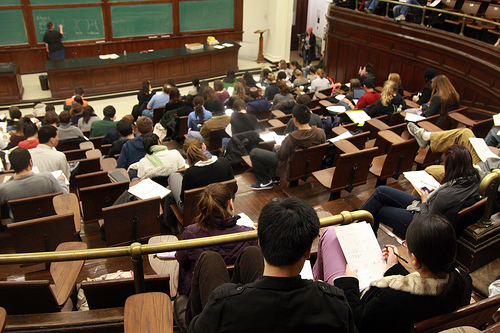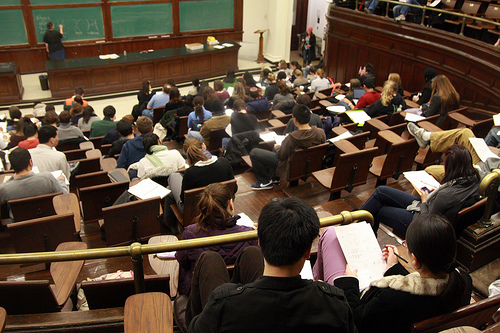

Duncan's research (PDF) shows that nearly two thirds of students check their phones during class, and those who do receive an average of half a grade lower than their peers who don’t.
Phones aren’t the only problem as a recent study by researchers in Canada reveals that laptops can be just as distracting.
In the Canadian study, one group of college students were given laptops in class, along with a small “multitasking” assignment typical of what many students are already doing, such as checking a text message.
The students using laptops received a full grade lower than students without laptops.
There was also a ripple effect: students sitting within view of the laptops, but not using them, performed even worse.
Duncan says both students and teachers underestimate the problem.
Students are convinced that they can multitask well, and are surprised to learn of the grade-point impact of checking their phones.
What teachers can do
Teachers, meanwhile, are unaware of three quarters of the cell phone use in their classrooms.
Now Duncan has new, unpublished data that shows how college instructors can drastically reduce the distraction of cell phones in their classrooms.
His study shows that in classes where teachers implement policies to restrict technology use, as well as take the time to educate students about the impact cell phone use has on grades, the number of students who use cell phones in class "never" or just "1-2 times" rises from 41 percent to 71 percent.









